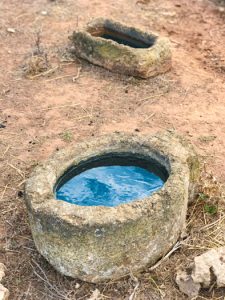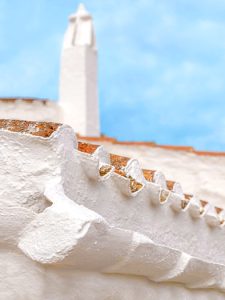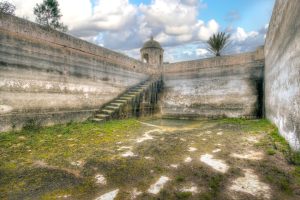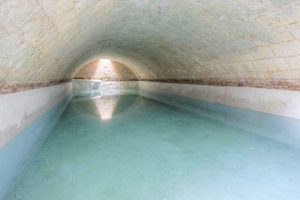Introduction
Water, a fundamental element of life, and has always been a priority in human communities around the world. Menorca, a small Mediterranean island in the Balearic Archipelago, presents specific challenges due to its relief and size. Despite its limited extension (700 km2), the presence of porous limestone rocks has given rise to aquifers of great importance, the island being home to 53 sub-basins, the largest of which is that of Cala en Porter with 46 km2 of surface area.
The Climate of Menorca
Menorca’s climate concentrates rainfall in spring and autumn, with three months of dry summer and high temperatures. This climatic reality is complicated by a diverse geological configuration. In the north of the island, non-permeable soils limit water storage, while in the south, calcareous soils give rise to large aquifers.
Prehistoric Water Collection Systems
With regard to prehistoric water collection systems, the island has various types documented both in the settlements and in the countryside. These include wells, channels with cisterns, and artificial and natural pools or basins. The cisterns excavated in the rock, documented mainly in the Talayotic settlements, show a direct connection with the dwellings and some are highly complex with tanks connected by channels.
Modern-day water supply in Menorca’s country estates
The system of water channels and cisterns in Menorcan rural houses is a direct legacy from prehistoric and Talayotic times. It represents centuries of adaptation to the local climate, using creative architectural resources to collect, store and distribute water. Menorcan country estates maintain a similar configuration to the houses of our ancestors, with channels that collect water from the roofs and carry it to cisterns with barrel vaults and sealed walls. In addition, architectural features such as ‘aljubs’ (water cisterns) and canals dug into the rock distribute water to watering troughs for livestock.
Today, some country estates are supplied by the water network. In addition, the reuse of grey water for irrigation is a growing trend.
Application for New Boreholes and Groundwater Development
The new hydrological plan prohibits new groundwater abstraction in overexploited aquifers. New boreholes are allowed only in extraordinary cases, in important and demonstrable agricultural and livestock exploitations. Applications for permits for new boreholes or the legalisation of wells can be made through this specific link.
Conclusion
Before acquiring a country estate in Menorca, it is vital to study its water resources and compare them with the requirements of the project. Given the precious and scarce nature of water, its consideration should be paramount when planning activities. The implementation of sustainable practices, such as the reuse of grey water and the choice of low-consumption native plants, becomes a determining factor in the sustainability of the estate.



Discover the authentic beauty of country life in Menorca with our exclusive country estates. At Ses Moreres, we are proud to offer you properties that reflect the rich history and serenity of this unique island. Discover the magic of living in an environment where tradition meets modern comfort.



Leave a Reply